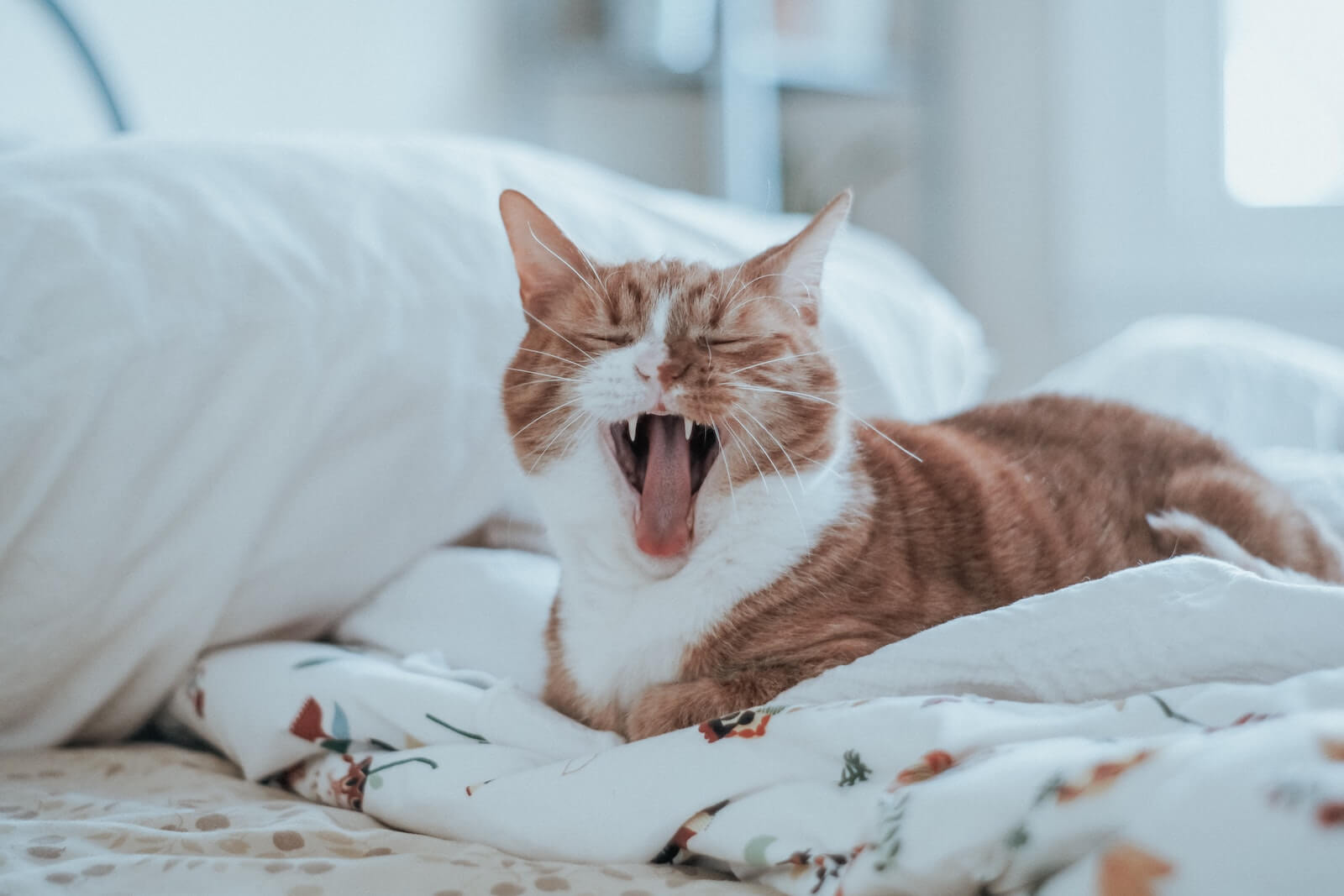Did you know that cats should also brush their teeth? Of course, cats’ teeth, just like ours, get dirty with food and whatever they chew and can develop plaque and tartar that could end up damaging and weakening their teeth and gums. A cat’s dental health is vital because an infection or disease can be annoying and painful for your furry friend. It could endanger its health in severe cases, potentially affecting vital organs.
If you have no idea how to clean your cat’s teeth, don’t worry, you’re in the perfect place to start.
Should I brush my cat’s teeth?
Your cat’s dental care is as important as its overall health.
Cats eat kibble, snacks, bugs, and plants and use their tongue to clean their fur, so you can imagine their mouth is full of many things and bacteria residues. We must take care of our cat’s oral hygiene to avoid their teeth weakening prematurely and so that their gums are always strong and healthy.
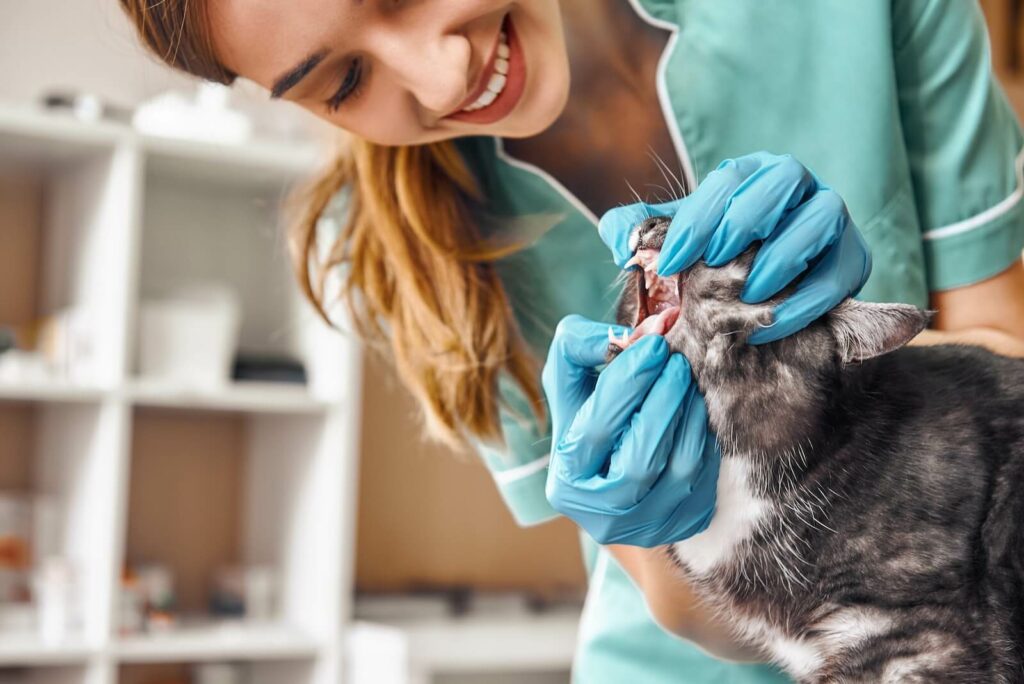
Experts mention that between 80 and 90% of adult cats present dental diseases, and this is due to the lack of prevention of cat parents, who often think that an annual cleaning is enough when in fact brushing should be done daily.
Think about what would happen if you stopped brushing your teeth for one, two, or three years. From bad breath, loose teeth with excessive tartar, gum infections, constant inflammation, bone loss, jaw dislocation, and significant organ damage. Oh no, better to brush those teeth and have regular dental checkups.
How often should I brush my cat’s teeth?
The ideal answer is daily. Although you can do it every other day, it is crucial to integrate dental care into your cat’s routine and pay attention to any symptoms that may indicate a problem.
At first, it’s hard to tell when an infection is starting, as cats are experts at hiding pain and discomfort, but you may notice that your cat doesn’t want you to touch its mouth or stops chewing his snacks and toys. Another indicator is red or bloody gums, bad breath, and constant drooling.
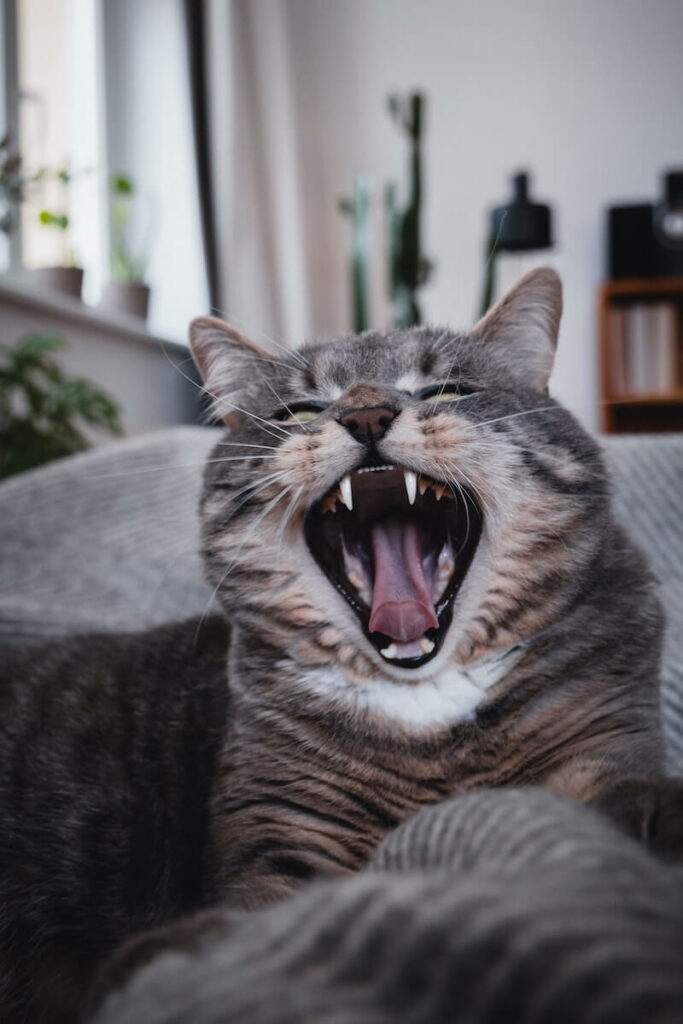
It is important to note that bad breath always indicates something is wrong. It’s unnatural and shouldn’t be expected in any animal, especially if the smell is powerful and acidic.
At-home cat dental care: 3 different methods
Fortunately for cats and cat parents, there is more than one way to take care of the oral health of these furries. I will tell you some of them so you can try them all and choose the one that works best at home.
1. Teeth brushing
The best thing to do is to brush your cat’s teeth, preferably with a soft bristle or finger brush, to which you will use toothpaste suitable for cats. Never use toothpaste for human consumption since the active ingredients harm your feline.
If you have never done this before, I recommend you start by getting your cat used to having something in his mouth. You can start by gently lifting its lip and massaging the teeth and gums with your finger. Chances are that the first few times, your cat will only allow you to lift his lip and maybe touch a tooth or two, but as the days go by, your feline friend will get used to the handling.
Once your cat allows you to massage all its teeth, you can move to the second level and add a toothbrush with paste to the routine. Feline toothpaste is usually meat flavored, so you shouldn’t have any problem getting your cat to accept it. First, let your kitty try it, and then gently brush its teeth as you would do your own, not forgetting the gums. I recommend you be delicate and quick simultaneously because, as you probably already know, cats are not very patient.
My best advice is patience. Brushing your cat’s teeth may take weeks, but you will get there. Remember not to force your cat into anything. If one day you notice she doesn’t feel like it or when you see him starting to get annoyed, let your cat go. You don’t want him to associate tooth brushing with something negative.
2. Gauze alternative
Although cats usually get used to the toothbrush after a while, some never accept it. In these cases, you can replace the brush with gauze with cat toothpaste, which makes brushing lighter and less invasive for your feline.
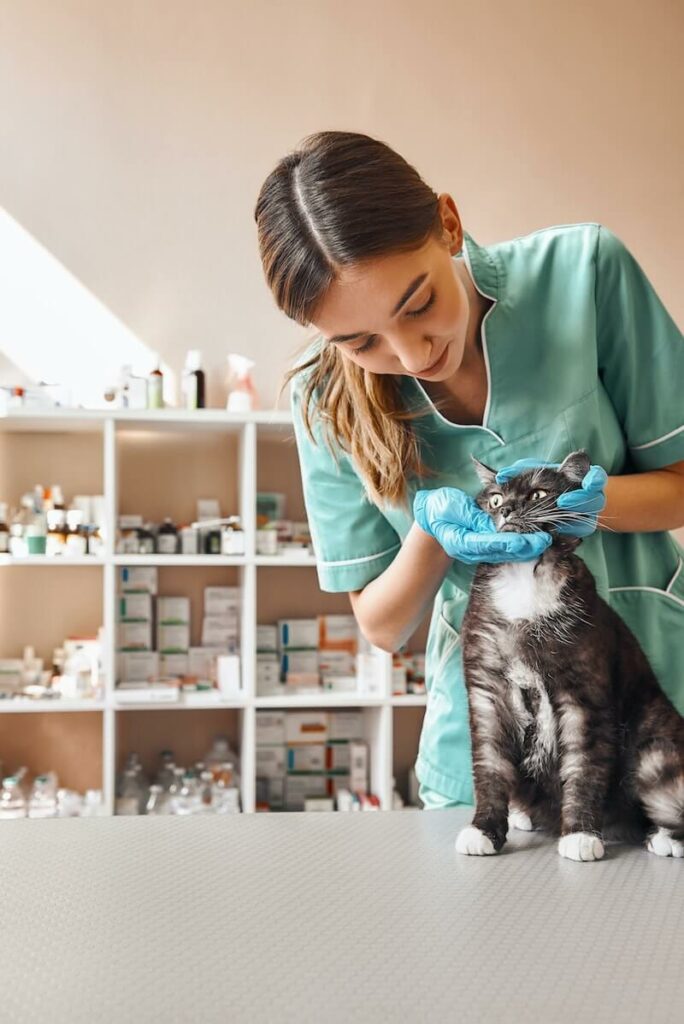
3. Cleaning treats and supplements
There are many products out there that promise to help your cat’s oral care, from food brands, treats, toys, and more, and while many work, the reality is that most don’t do much good.
Whenever you want to supplement your cat’s dental care with a snack or supplement, check if it’s approved by the Veterinary Oral Health Council (VOHC) to know your money has been well spent.
You can use various products to keep your cat’s teeth dazzling white and his breath fresh. Some kibbles and snacks help control tartar and improve breath, as well as supplements added to water to kill bacteria and promote good breath. You can apply gels to your cat’s teeth that have the same effect as regular brushing. The trick is getting your cat to allow you to put the gel on all the teeth.
Professional teeth cleaning
Just as you take your cat for general checkups, don’t forget to ask for a dental evaluation to rule out or correct any oral problems your cat may have. Dental cleanings are suggested at least once a year, and they are perfect for finishing with all traces of tartar and removing loose teeth before they cause any problems.
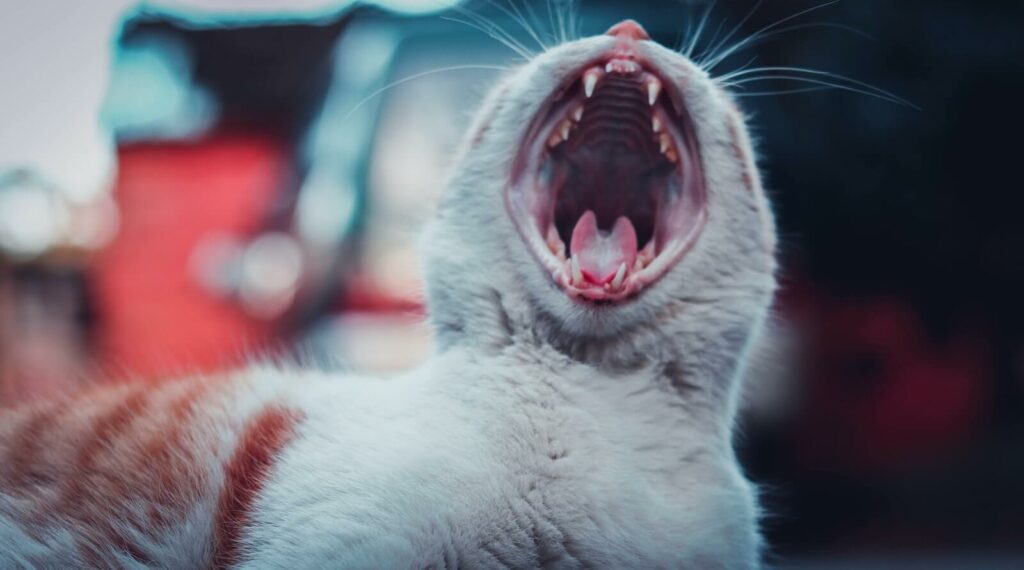
Professional teeth cleanings will perfectly complement your home dental routine, and remember that one is not a substitute for the other.
Cleaning your cat’s teeth? The bottom line
When you bring a cat home, you commit to caring for and loving it forever, including ensuring its health is always in good condition. An essential part of caring for a cat is maintaining excellent oral hygiene, as dental problems in a cat can lead to serious illness. A cat with loose teeth or mouth sores is vulnerable to any bacteria entering its bloodstream, leading to organ damage or a fatal outcome.
Fortunately, this can be easily avoided with good tooth brushing and yearly professional cleaning. If you get your cat used to it from a young age, you will never have a problem brushing his teeth, and he may even enjoy it.
